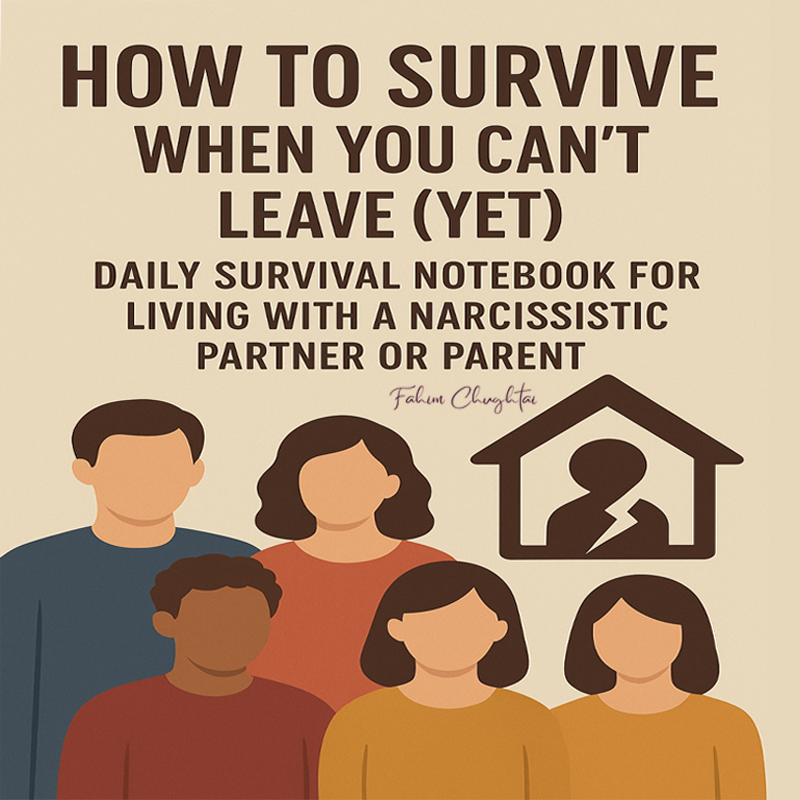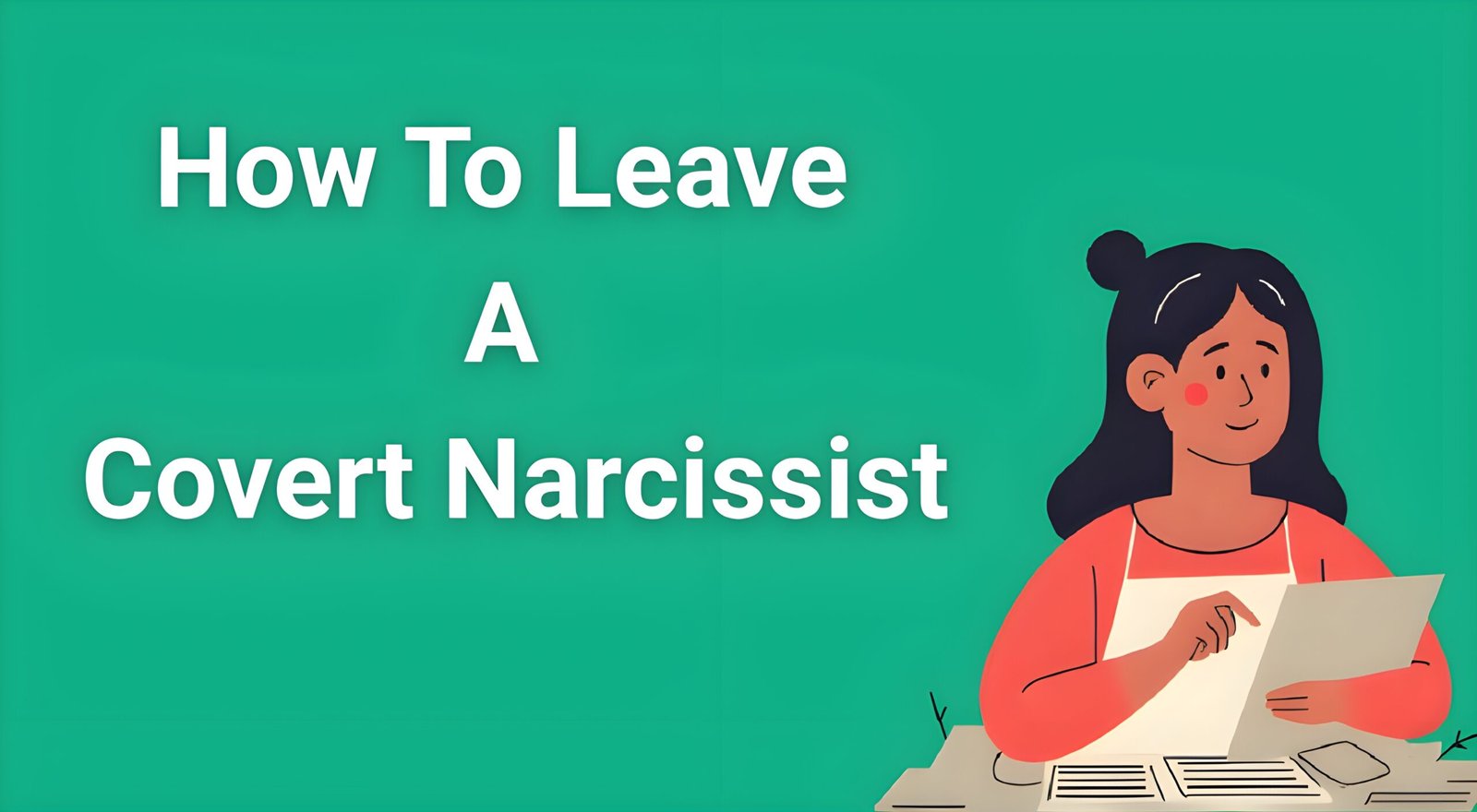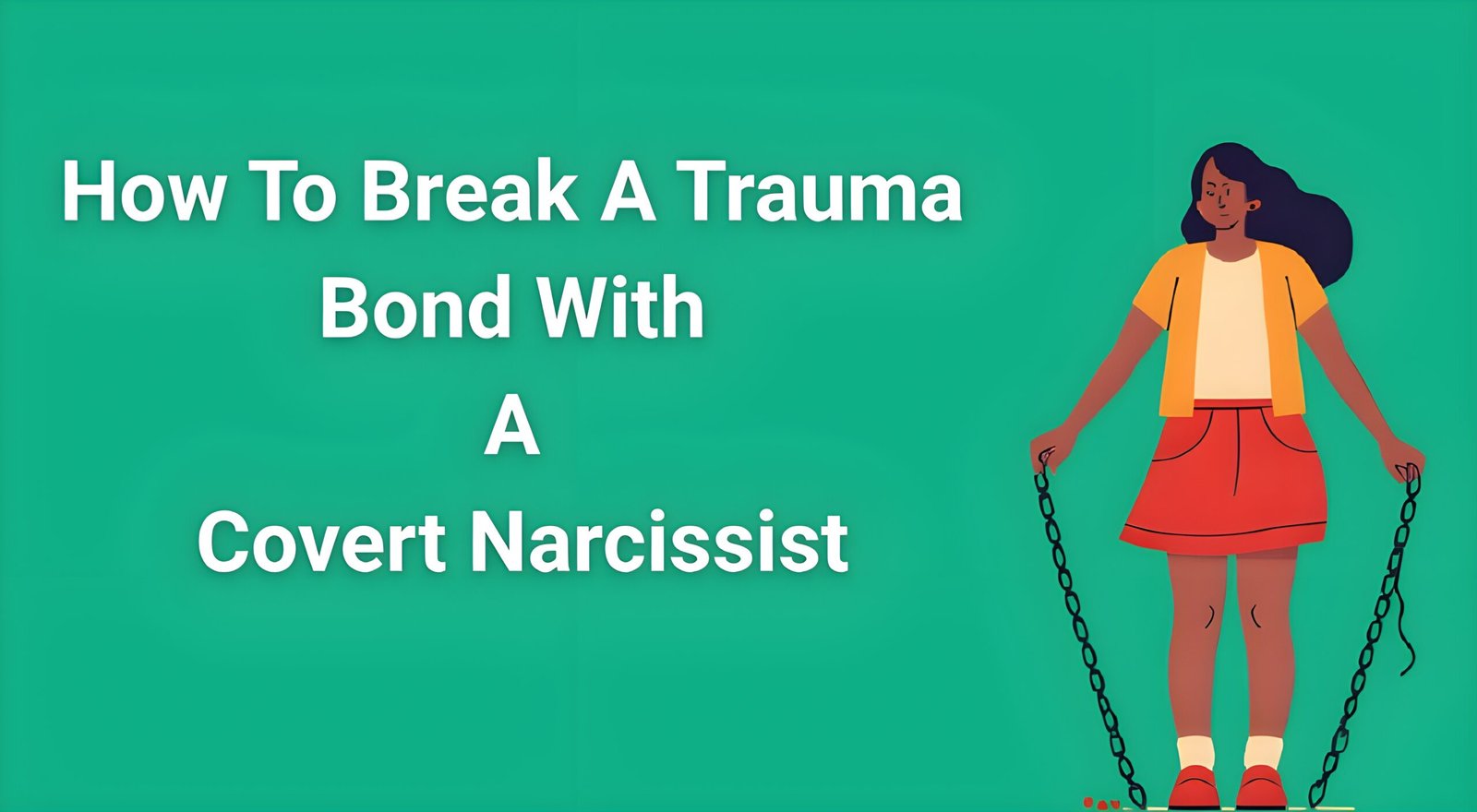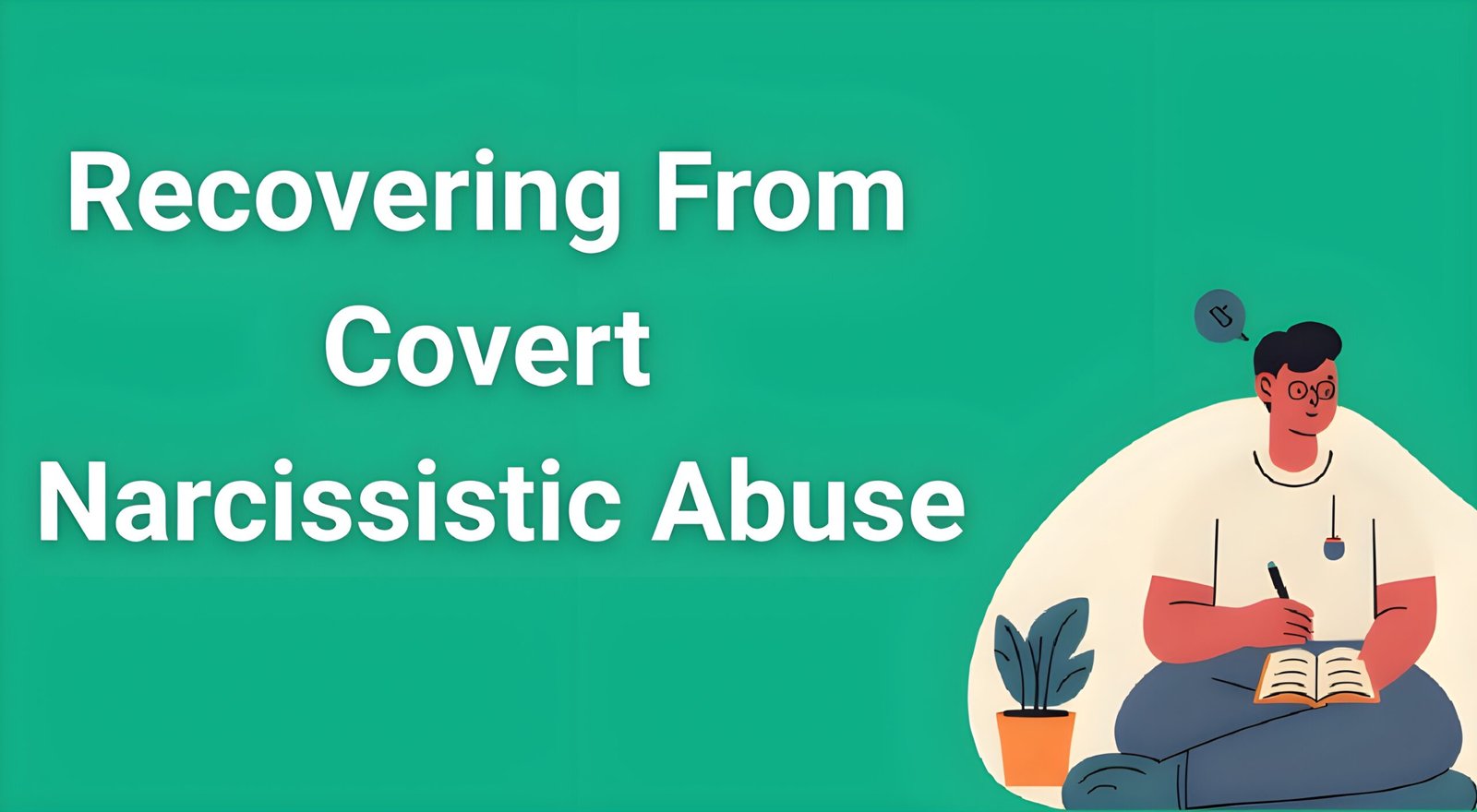Learning how to leave a covert narcissist requires a completely different approach than ending a typical relationship. Unlike their overt counterparts who display obvious red flags, covert narcissists operate in shadows, using subtle manipulation tactics that make leaving feel nearly impossible. The constant doubt, emotional exhaustion, and fear of their reaction can paralyze even the strongest individuals.
- Why Leaving a Covert Narcissist Is Different
- Phase 1: Recognition and Mental Preparation
- Phase 2: Secret Planning and Preparation
- Phase 3: The Strategic Exit
- Phase 4: Protecting Yourself Post-Departure
- Phase 5: Recovery and Rebuilding
- Warning Signs: When You Can’t Leave Yet
- Professional Support: Getting Expert Guidance
- Frequently Asked Questions
- Conclusion
If you’re questioning whether you’re in a relationship with a covert narcissist, feeling trapped despite knowing something’s wrong, or wondering why leaving feels so difficult, you’re not alone. The unique challenges of escaping a covert narcissist demand careful planning, strategic thinking, and above all, absolute secrecy during your exit planning phase.
Why Leaving a Covert Narcissist Is Different
The Master of Hidden Manipulation
Covert narcissists excel at presenting themselves as victims, empaths, or misunderstood souls to the outside world. This carefully crafted image makes leaving exponentially more challenging because:
Public Perception vs. Private Reality: While they may appear humble, self-sacrificing, or even therapeutic to others, behind closed doors they systematically erode your self-esteem through passive-aggressive behaviors, silent treatments, and emotional withdrawal.
Am I Dealing With a Covert Narcissist — or Just Toxic Behavior?
The Trauma Bond Factor: Unlike obvious abuse that your mind can clearly categorize as wrong, covert narcissistic abuse creates confusion. The intermittent reinforcement of love and cruelty creates powerful neurological addiction patterns that make leaving feel like withdrawal from a drug.
Social Isolation Tactics: They’ve likely already begun isolating you from support systems by positioning themselves as the only one who “truly understands” you, while subtly undermining your other relationships.
Why Direct Confrontation Fails
Traditional breakup approaches don’t work with covert narcissists because they’re master manipulators who will:
- Turn your words against you
- Make you question your perceptions
- Rally mutual friends to their side
- Escalate their hidden abuse tactics
- Use your vulnerabilities as weapons
The key to successfully leaving a covert narcissist lies in understanding that this isn’t about having “the talk” – it’s about executing a strategic exit plan they never see coming.
Phase 1: Recognition and Mental Preparation
Acknowledge the Reality
The first step in how to leave a covert narcissist begins with honest self-assessment. If you recognize these patterns, you’re likely dealing with covert narcissistic abuse:
Emotional Patterns: You constantly feel confused, questioning your memory of events, or wondering if you’re “too sensitive.” You may find yourself apologizing frequently for things that aren’t your fault.
Relationship Dynamics: They present as the victim in most situations, rarely take accountability, and somehow conversations always end up being about them. You feel emotionally drained after interactions.
Social Manipulation: They’ve isolated you from friends and family, often subtly, by creating drama or making you choose between them and others.
Break the Mental Chains
Covert narcissistic abuse creates a psychological prison that exists primarily in your mind. Breaking free requires:
Reality Anchoring: Start keeping a private journal of incidents. Write down exact conversations, behaviors, and your feelings. This becomes crucial evidence when they try to gaslight you later.
Emotional Validation: Understand that your feelings are valid, even if they tell you otherwise. The confusion you feel is a natural response to psychological manipulation.
Future Visioning: Begin imagining life without them. What would you do? Where would you go? Who would you reconnect with? This mental rehearsal is crucial for motivation.
Phase 2: Secret Planning and Preparation
Financial Independence Strategy
Covert narcissists often maintain financial control as a key manipulation tactic. Your financial preparation must be completely covert:
Separate Emergency Fund: Open a bank account at a different institution using only your name. Even small amounts added weekly can build meaningful freedom funds.
Important Document Collection: Slowly gather copies of essential documents: birth certificate, passport, social security card, insurance information, and financial records. Store these securely outside your shared space.
Credit Score Protection: Check your credit report and consider freezing your credit to prevent them from opening accounts in your name during or after your departure.
Building Your Support Network
Reconnect Quietly: Reach out to friends and family you may have lost touch with during the relationship. Covert narcissists systematically isolate their victims, so rebuilding these connections requires stealth.
Professional Support System: Consider finding a therapist who specializes in narcissistic abuse recovery. Many offer online sessions that can be kept completely private.
Legal Consultation: If you share assets, children, or legal obligations, consult with an attorney who understands high-conflict personalities. Many offer free consultations that can help you understand your options.
Create Your Exit Strategy
Safe Housing Plan: Identify where you’ll go when you leave. This might be with family, friends, or temporary housing. Have multiple backup options prepared.
Transportation Arrangements: Ensure you have reliable transportation or know who can help you move when the time comes. Consider having a packed bag stored somewhere safe.
Technology Security: Change passwords on personal accounts, enable two-factor authentication, and consider getting a separate phone they don’t know about for coordinating your exit.
Phase 3: The Strategic Exit
Timing Your Departure
The timing of how to leave a covert narcissist is crucial for your safety and success:
When They’re Absent: Plan your departure for when they’re at work, traveling, or otherwise occupied. This avoids confrontational scenes that can become dangerous.
During Their “Love-Bombing” Phase: Paradoxically, leaving during times when they’re being overly affectionate can be strategic because they’re less likely to suspect your plans.
Avoid Trigger Periods: Don’t leave around significant dates (anniversaries, holidays, birthdays) as this can escalate their response and provide them with ammunition for victim narratives.
Executing the Plan
The Gray Rock Method: In the weeks leading up to your departure, become increasingly boring and non-reactive. This reduces their interest in monitoring your activities closely.
Gradual Transition: Slowly move important items out of shared spaces. Take things they won’t immediately notice are missing.
Communication Strategy: Have a plan for how you’ll communicate your departure. A simple, factual message delivered after you’re safely away is often most effective.
The Departure Day
Move Quickly and Quietly: Once you begin the physical departure, move efficiently. Having everything pre-planned allows you to execute rapidly.
Bring Witnesses: If possible, have trusted friends or family members present during the actual move for both emotional support and safety.
Document Everything: Take photos of your belongings and the condition of shared property to protect yourself from false accusations later.
Phase 4: Protecting Yourself Post-Departure
Expect the Unexpected
Understanding how covert narcissists typically respond to abandonment helps you prepare:
Initial Shock and Love-Bombing: They may initially try to win you back with grand gestures, promises to change, or overwhelming affection. Remember: this is manipulation, not genuine change.
Victim Narrative Creation: Expect them to tell others a story that positions them as the victim and you as cruel or unstable. This is standard operating procedure.
Flying Monkeys Deployment: They’ll likely use mutual friends, family members, or even your own relatives to gather information about you or pressure you to return.
Boundary Enforcement
No Contact Protocol: The most effective way to heal from covert narcissistic abuse is complete no contact. This means no phone calls, texts, emails, social media interactions, or in-person meetings.
Social Media Security: Block them on all platforms and consider making your profiles private. They often use social media to monitor and manipulate post-breakup.
Legal Boundaries: If you share children or legal obligations, communicate only through court-approved methods or your attorney. Keep all communication strictly factual and brief.
Dealing with Hoovering Attempts
Covert narcissists rarely accept permanent rejection. Prepare for “hoovering” attempts to suck you back in:
Emergency Contact Attempts: They may claim family emergencies, health crises, or other urgent situations to force contact. Verify these claims through independent sources.
Third-Party Manipulation: Using mutual friends, family members, or even strangers to deliver messages or gather information about you.
Subtle Presence: Showing up at places you frequent, driving by your new residence, or inserting themselves into your social circles.
Phase 5: Recovery and Rebuilding
Understanding Trauma Bonding
The reason leaving a covert narcissist feels so difficult isn’t lack of willpower – it’s neurological addiction created by intermittent reinforcement patterns. This trauma bonding requires specific healing approaches:
Withdrawal Symptoms: Expect to experience anxiety, depression, obsessive thoughts about them, and physical symptoms similar to drug withdrawal. This is normal and temporary.
Cognitive Restructuring: Your thought patterns have been conditioned by months or years of manipulation. Rebuilding healthy thinking takes time and often professional support.
Emotional Regulation: Learning to trust your feelings again after extended gaslighting requires patience and practice.
Professional Recovery Support
Specialized Therapy: Working with a therapist who understands narcissistic abuse can accelerate your healing process. They can help you process the trauma, rebuild self-esteem, and develop healthy relationship patterns.
Support Groups: Connecting with other survivors provides validation and practical strategies. Many online communities offer anonymity and 24/7 support.
Medical Assessment: The chronic stress of narcissistic abuse can impact your physical health. Consider getting a comprehensive medical evaluation to address any health issues that may have been neglected.
Rebuilding Your Identity
Rediscovering Your Preferences: Covert narcissists systematically erase their victim’s individual preferences. Start small by choosing things you genuinely enjoy without considering their opinion.
Reconnecting with Your Values: Identify what matters to you independent of their influence. What are your actual beliefs, goals, and dreams?
Setting Healthy Boundaries: Learn to recognize and communicate your boundaries clearly. This skill protects you from future manipulative relationships.
Creating Your New Life
Social Reconnection: Gradually rebuild relationships that were damaged or neglected during the narcissistic relationship. Be patient with friends and family who may not understand what you’ve been through.
Career and Education: Many survivors find their professional lives were impacted by the relationship. Consider what career moves or educational opportunities you want to pursue.
Future Relationship Readiness: Take time to heal before entering new romantic relationships. Understanding your vulnerabilities helps you make healthier choices in the future.
Warning Signs: When You Can’t Leave Yet
Sometimes immediate departure isn’t possible due to financial constraints, child custody issues, or safety concerns. If you’re in this situation:
Safety Planning: Develop a detailed safety plan that includes escape routes, emergency contacts, and survival strategies for dangerous situations.
Gray Rock Technique: Become as uninteresting as possible to reduce their focus on you while you prepare for eventual departure.
Documentation: Carefully document abuse incidents for potential legal proceedings. Store this evidence securely outside your shared space.
Support Network Maintenance: Maintain secret connections with supportive people even if you can’t leave immediately.
Still Living With Them? You’re Not Helpless.

For those who find themselves unable to leave immediately, specialized resources can provide crucial guidance on surviving in these circumstances while planning for eventual freedom.
Professional Support: Getting Expert Guidance
Leaving a covert narcissist often requires specialized expertise beyond what friends and family can provide. The unique psychological dynamics involved demand professional understanding.
Many survivors find value in comprehensive analysis of their specific situation. Professional assessments can help you understand exactly what manipulation tactics are being used against you, why you feel so confused, and what specific steps you need to take for your unique circumstances. This type of specialized analysis provides clarity that generic advice simply cannot offer.
You’ve Seen the Patterns. Now Break the Bond.
Additionally, the neurological addiction created by trauma bonding requires specific interventions. Understanding the brain science behind why leaving feels impossible can be incredibly liberating. Structured recovery programs that address the biological aspects of trauma bonding often prove more effective than willpower alone.
For those still in the relationship but planning their exit, specialized survival strategies can help you maintain your sanity and safety while preparing for departure. These approaches go beyond basic safety planning to address the specific psychological warfare tactics covert narcissists employ.
Frequently Asked Questions
Q: How do I know for certain I’m with a covert narcissist and not just an unhappy partner?
A: The key difference lies in patterns of manipulation versus legitimate relationship issues. Covert narcissists consistently use gaslighting, blame-shifting, and emotional manipulation to maintain control. If you regularly question your sanity, memory, or perception of events, this suggests systematic psychological manipulation rather than normal relationship conflicts.
Q: What if they threaten suicide or self-harm when I try to leave?
A: This is a common manipulation tactic. If they threaten self-harm, call emergency services immediately. This serves two purposes: it ensures they get help if the threat is real, and it demonstrates that such threats won’t manipulate you into staying. Document these incidents for your records.
Q: How long does it take to recover from a covert narcissistic relationship?
A: Recovery timelines vary based on the relationship length, abuse severity, and individual factors. However, most survivors report significant improvement within 6-12 months of no contact, with continued healing over 2-3 years. Professional support can significantly accelerate this process.
Q: Will they leave me alone once I leave, or will the harassment continue?
A: Covert narcissists often engage in prolonged hoovering attempts. They may contact you months or even years later, especially during significant life events. Maintaining strict no contact and having strong boundaries is essential for long-term peace.
Q: What if we have children together?
A: Co-parenting with a covert narcissist requires specific strategies including parallel parenting, court-ordered communication methods, and detailed custody agreements. Consider working with a family law attorney experienced in high-conflict divorces and a child psychologist familiar with narcissistic abuse.
Q: How do I rebuild trust in my judgment after being manipulated for so long?
A: Rebuilding trust in yourself is a gradual process. Start by keeping a reality journal, seeking validation from trusted friends or professionals, and practicing small decisions where you trust your instincts. Professional therapy can significantly help this process.
Conclusion
Learning how to leave a covert narcissist successfully requires understanding that this isn’t a typical breakup – it’s an escape from psychological manipulation that demands strategic planning, careful execution, and ongoing protection. The process is challenging because covert narcissists excel at making their victims feel confused, dependent, and unable to trust their own perceptions.
Remember that the difficulty you’re experiencing in leaving isn’t a character flaw or sign of weakness. Covert narcissistic abuse creates genuine psychological barriers that require specific strategies to overcome. Your confusion, fear, and attachment are normal responses to abnormal treatment.
The path to freedom begins with recognizing the reality of your situation, secretly planning your escape, executing your departure without confrontation, and protecting yourself during the inevitable aftermath. Recovery takes time, but thousands of survivors have successfully rebuilt their lives after leaving covert narcissistic relationships.
Your freedom is possible. Your healing is achievable. Your future can be filled with healthy relationships based on genuine love and respect rather than manipulation and control. Take the first step by believing you deserve better – because you absolutely do.






